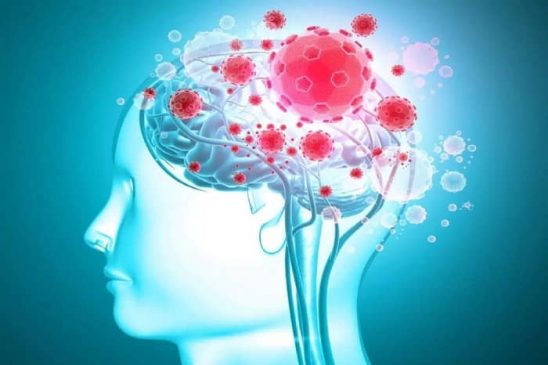Vascular dementia is a common form of dementia, which is typically caused by a disrupted or impaired blood supply to the brain that may be due to a series of small strokes. The following will provide detailed information about what causes vascular dementia, the symptoms of vascular dementia and vascular dementia treatment.
What is Vascular Dementia?

Dementia vascular is a progressive decline in cognitive and memory functions caused by a reduction or a blockage of blood flow to the brain. The inadequate blood flow can damage and may eventually kill the cells anywhere in the body. The primary damage occurs in the brain’s cortex, which is responsible for language, learning and memory. Vascular dementia is the second most common type of dementia, with Alzheimer’s being the first.
Vascular Dementia Prognosis
If you are concerned about dementia for yourself or a loved one, you must visit your physician as soon as possible. The earlier a vascular dementia diagnosis is made, the better the chances are of treatment being able to slow the progression of the disease. With vascular dementia, prognosis life expectancy varies depending on the individual and the exact stage or pathophysiology of vascular dementia; however, the expected lifespan after diagnosis is typically five years.
The physician will confirm a diagnosis of vascular dementia through neurocognitive testing, which involves a variety of written or computerized tests that will help evaluate thinking skills, such as problem-solving, judgment, memory, and reasoning. Brain imaging is also known, typically through an MRI, which will show evidence of either a recent stroke or other changes in blood vessels that may affect the impairment.
Stages of Vascular Dementia
Vascular dementia symptoms may suddenly appear to worsen due to a stroke and then remain level for a somewhat long period of time. Progression of vascular dementia occurs when the next stroke occurs, which may be months or even years from the previous stroke. When another stroke occurs, the symptoms worsen. Vascular dementia stages typically progress in a stepped manner, which differs from the gradual progression of symptoms associated with Alzheimer’s disease.
Vascular dementia progression is caused by a series of small strokes, causing the symptoms to emerge gradually. Throughout the early stages of vascular dementia, people tend to maintain emotional responses and personality, which means the person is aware of their condition and may be prone to depression. Unfortunately, in most situations, the end stage of vascular dementia includes a heart attack or stroke, which ultimately results in death.
Signs and Symptoms
Although vascular dementia affects each person in different ways and the rate of progression varies from person to person, some of the early signs of vascular dementia are similar. Signs and symptoms of vascular dementia may include:
- Memory problems and general forgetfulness
- Unusual changes in mood, such as irritability and depression
- Slowed thinking
- Confusion may worsen at night.
- Loss of social skills
- Change in personality
- Hallucinations and delusions
- Leg and arm weakness
- Tremors
- Dizziness
- Balance problems
- Walking with rapid and shuffling steps
- Loss of bladder or bowel control
- Language problems-for example, difficulties finding the right word for something
- Slurred speech
- Getting lost, even in familiar surroundings
- Difficulty organizing, planning and following instructions
- Difficulty doing things that typically come easily to them, such as paying bills, playing a board game and handling money
- Crying and laughing inappropriately
- Decrease inability to function in daily life and activities
Causes
Vascular dementia is caused by either a stroke, a disease of the small vessels or a combination of the two. Vascular dementia causes are commonly caused because there is a blockage of the small blood vessels somewhere in the artery system that enters through the base of the skull and is responsible for feeding the brain.
Blockages are often caused by a buildup of plaque inside the artery wall or by a blood clot that has broken loose and caused a clog in the artery. Who can form a clot due to abnormal heart rhythms and other heart abnormalities?
Know the Symptoms of a Stroke
You must know the symptoms of a stroke. The quicker the response to a stroke, the better the chances are for treatment to reopen a blocked blood vessel, which can reduce the severity of the stroke. Symptoms of a stroke may include:
- Weakness, numbness and paralysis on one side of your face and body
- Seeing double or loss of vision
- Loss of coordination and balance-for example, trouble walking or dizziness
- Difficulty speaking, such as slurring words and the inability to repeat a simple sentence
- A sudden and severe headache, which may include vomiting, stiff neck and pain in the eyes
Treatment for Vascular Dementia
There is currently no cure for vascular dementia. However, the earlier the damage to the brain is caught, the better the chance is of preventing dementia or possibly slowing down the progression of the disease.
Treating the risk factors that may lead to vascular dementia, such as diabetes and high blood pressure, may be possible to reverse some of the symptoms of vascular dementia or reduce the risk of a stroke, which can lead to the disease. Following a stroke, occupational therapy, physiotherapy and speech therapy may help you regain some or all of the lost functions after a stroke.
Some medications used to treat the cognitive symptoms associated with Alzheimer’s disease have shown to be beneficial for treating vascular dementia. However, the most important thing in treating the disease is minimizing the risk of another stroke, making dementia worse. Some of the symptoms of vascular cognitive impairment frequently go unrecognized, so if you have suffered a mini-stroke, have a high risk of heart or blood vessel disease or have had a stroke, it is important to talk with your doctor about cognitive tests.
Managing Vascular Dementia
It is scary being diagnosed with vascular dementia. Still, it is important to remember that someone with dementia can continue to lead a fulfilling, healthy life for many years after the diagnosis. When you first hear the diagnosis, it is easy to wonder what vascular dementia life expectancy will be, but you mustn’t give up.
Do not sit idle and wait for the end-stage vascular dementia; instead, continue to look after your emotional and physical health, do the things you love doing, and spend time with your family and friends. Some of the things you can do to help manage the symptoms may include:
- Regular exercise-getting in the habit of exercising every day, even for a short walk, will help keep the blood flowing in your legs, to your heart, and through your brain.
- Having a network of support and encouragement-support and encouragement is often the best medicine for any illness. Make it a point to talk with friends and family as often as possible. Support groups are also excellent for meeting new people who share the same likes as you do.
- Eat healthy-in most cases, high cholesterol, high blood pressure and diabetes all go hand-in-hand with heart disease. Eating a diet rich in vitamins, minerals and other supplements your body needs will help you stay strong and healthy.
- Having more fun-laughing is excellent for reducing stress and worry. Find new things to do, get out and meet new people, go shopping, take a trip or call a friend that makes you laugh. Laughter can be the best medicine.
- Learn how to manage your stress-talk with your physician about stress techniques, such as breathing exercises that will help you to remain calm and stress-free.
- Challenge your brain everyday-learn new skills, do crossword puzzles, and read and play memory games
It is often difficult to define vascular dementia because though the causes of vascular dementia and symptoms are typically similar, the severity depends on the person and the severity of the stroke. It is important to understand that vascular dementia can come on either gradually or suddenly, ranging from mild to severe.
It is extremely important to talk with your doctor about your overall health. Know the risks and the symptoms of a stroke and seek medical attention immediately if you or someone you know is possibly having a stroke.















